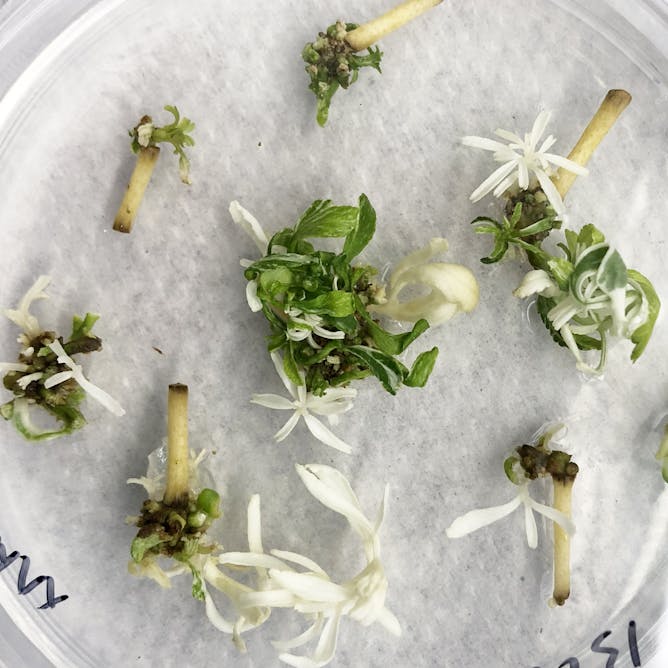
The lighter citrus plants have been edited using CRISPR to alter the phytoene desaturase (PDS) gene which gives them a white color.
Yi Li
Yi Li, University of Connecticut
GMO crops have been rejected in many countries where food shortages are dire. Now, a scientist at the University of Connecticut has figured out how to create better crops with DNA editing.
|

A Georgia penitentiary in 1911.
Library of Congress
Barry Godfrey, University of Liverpool; Steven Soper, University of Georgia
Digitized state records help to tell the stories of African-American prisoners in the 19th and 20th century.
|
Politics + Society
|
-
Laura Dales, University of Western Australia; Emma Dalton, RMIT University
An MP from Japan's governing party recently commented that single women were a burden on the state. But many young women, and men, are rethinking the lure of married life.
-
Luis Gómez Romero, University of Wollongong
Mexico's presidential front-runner wants to end violence in Mexico by pardoning drug traffickers and corrupt officials. Some 235,000 people have died in the country's 11-year cartel war.
-
Mai Sato, University of Reading
Survey shows Zimbabwean policy makers need not fear a public backlash if they choose to abolition of the death penalty.
-
Yixiao Zhou, Curtin University; Rod Tyers, University of Western Australia
We modelled a number of scenarios showing all increases in US or Chinese trade protection would cause international trade, and the global economy more generally, to shrink.
-
Robi Sugara, Universitas Islam Negeri Syarif Hidayatullah Jakarta
To prevent people from climbing the staircase to terrorism, educating people about the values of tolerance should start early.
-
Brian Grodsky, University of Maryland, Baltimore County
Vladimir Putin's recent re-election was bad news for democracy in Russia. And it's a major loss in the struggle for liberalism, as anti-democratic leaders are assuming power across the globe.
|
|
Arts + Culture
|
-
Yannick Griep, University of Calgary
Bringing office supplies home - or stealing from your workplace - may seem like a good idea when you are upset with your boss, but think again, your issues may be easier solved through communication.
-
Nicky Nielsen, University of Manchester
How 4,000-year-old papyrus letters prompted the queen of crime fiction to write Death Comes as the End.
|
|